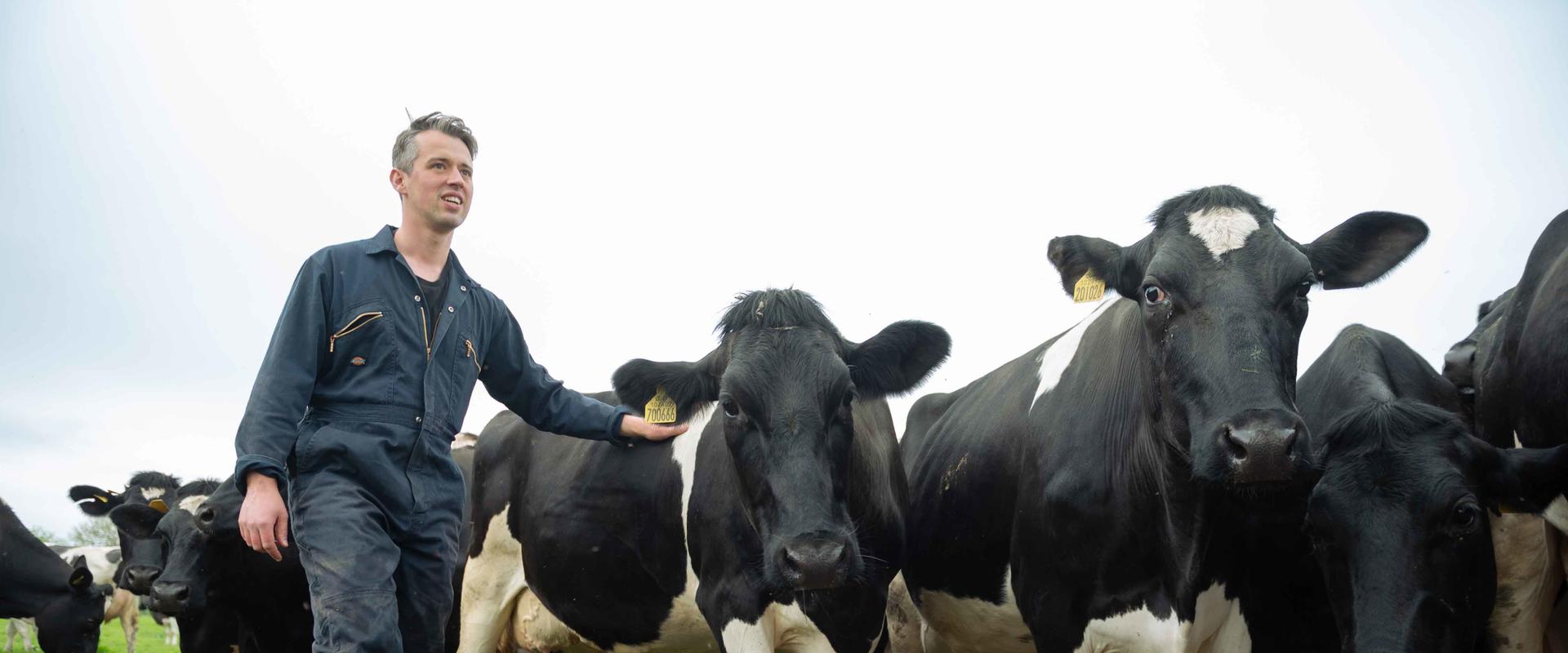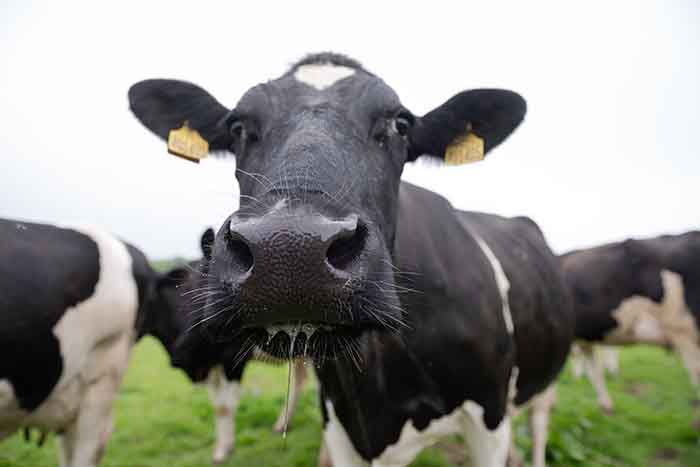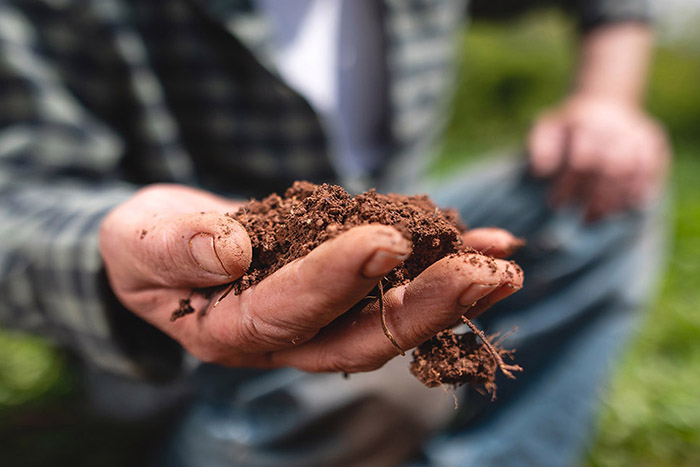Responsible farming, sustainably sourced milk

We use millions of litres of fresh milk each year in our confectionery and hot beverages – in fact, around 1% of the UK’s supply.
Given the effect that dairy farming has on the environment – groundwater pollution, contamination of soil by nutrients, greenhouse gas emissions – we recognise that we have an obligation, along with farmers, to lessen its impact.
The UK Government is replacing Common Agricultural Policy payments with the Environmental Land Management scheme. This will pay farmers for work that enhances the environment, such as tree and hedge planting, river management to mitigate flooding, creating and restoring wildlife habitats.
These are measures that farmers and companies involved in the dairy sector can all take to remove carbon from the atmosphere and sequester it in the ground. British farmers are one of the leading in protecting their local environment and making their industry more resilient to climate change. And we are supporting them in doing so.
First Milk
In 2003, we established our relationship with First Milk, the farmer-owned dairy co-operative based in Ayrshire and Cumbria. Through the partnership, we work with 85 farmers in the dairy operative across Cumbria and Ayrshire to provide high-quality fresh milk for brands such as KitKat and Nescafé Frothy Coffee.
Our goal, and that of First Milk, is to lessen environmental impact by improving the sustainability and efficiency of the supply chain. Each farmer receives a ’sustainability bonus’ for taking practical measures that protect and enhance natural assets on their land.
We are proud to be members of the First Milk supply group to Nestlé. Working with Nestlé has helped to enhance our strong values and beliefs that we are the custodians of the land for the next generation. Through their sustainability programme, it has allowed our farm to be managed with both an environmental and business perspective in mind. With the guidance and support of Nestlé and First Milk we are looking forward to playing our part in reducing greenhouse gas emissions associated with our business and we are enthusiastic about the potential for carbon storage into the soils beneath our grasslands.
We have a cunning plan
The Nestlé Milk Plan includes four practices that are compulsory for farmers, in order to receive the sustainability bonus payment for their milk. The Plan also includes five optional elements that we encourage First Milk farmers to participate in.
| Compulsory | Optional |
|---|---|
|
|
Cage fighters
More and more consumers are demanding food products from animals reared in ways that promote good welfare. In 2018 we joined with six other food companies to found the Global Coalition for Animal Welfare (GCAW).
GCAW is the world’s first industry-led collaboration of major companies working with farm animal welfare experts to improve the welfare of animals reared for food.
GCAW has identified five priority work streams:
- cage-free policies
- improved broiler chicken welfare
- farmed fish welfare
- antimicrobial resistance
- global standards for transportation and slaughter.
All GCAW members have made global commitments to source cage-free eggs by 2025.
It’s there in black and white
As specified in our Nestlé Commitment on Farm Animal Welfare, pdf 1.5Mb) and in our Nestlé Responsible Sourcing Standard (pdf, 2.4Mb), we support the World Organisation for Animal Health (OIEI) in promoting implementation of the ‘Five Freedoms’ for animals in the global food supply chain:
- Freedom from hunger, thirst and malnutrition
- Freedom from fear and distress
- Freedom from physical and thermal discomfort
- Freedom from pain, injury and disease
- Freedom to express normal patterns of behaviour
You may also be interested in
-
The new faces of farming How Nestlé supports dairy farming agripreneurship.FIND OUT MORE -
Nescafé Gold and the Milk Plan Building a long-term sustainable supply chain that produces the best quality milk for Nescafé frothy coffee.FIND OUT MORE
-
Pioneering soil carbon project with First Milk and Agricarbon How we work with First Milk to support the net zero ambitions of its farmers and customers.FIND OUT MORE


